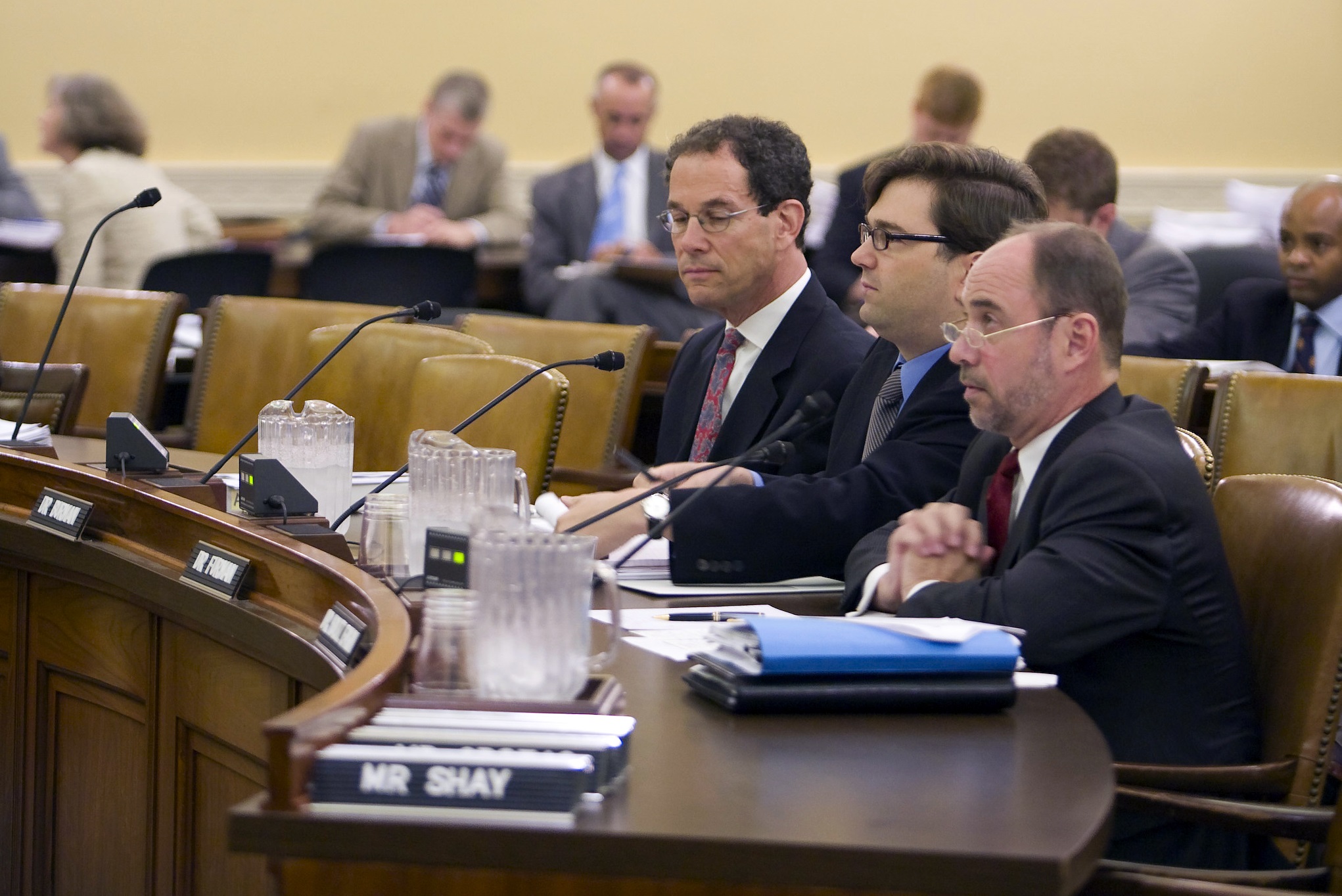
Summary
From 1995 to 2016, we made 425 grants totaling $214 million.
Our support for Policy Research started in the mid-1990s, but in 2004, we focused the grantmaking strategy to more intentionally advance the development of more effective domestic policies. We approached this aim by supporting special policy projects, incubating new ideas and cross-cutting research, and providing unrestricted operating support to a small portfolio of effective policy organizations. Our interest in promoting positive change often intersected with that of government, which typically has the ultimate responsibility, resources, and authority to implement systemic and sustainable change. We supported work that integrated research, policy, and practice, with a focus on innovative solutions to policy challenges. Grantmaking focused on two major areas: institutional support to key organizations and special policy projects.
Institutional Support to Key Organizations
Institutional support grants provided multi-year, general operating grants to a small group of organizations that produced rigorous research and analysis on issues critical to our domestic grantmaking strategies. Grantees then translated that work in ways that enhanced its value to policymakers, the media, and the general public.
The portfolio had two phases, each with a distinct focus, even while the overarching goal and criteria for grantee selection remained the same. In the early phase, from 2002 to 2009, the substantive focus was on strengthening the presence of traditionally underrepresented perspectives in the policy process. Subsequently, the portfolio was adjusted to focus more on fiscal and budget issues at the federal, state, and local levels
From 2004 to 2016, we awarded nearly $45 million in institutional support to grantee organizations that included the Urban-Brookings Tax Policy Center, the Center on Budget and Policy Priorities, and the Sargent Shriver National Center on Poverty Law, which continue to conduct policy research to inform policymakers and the public.

Special Policy Projects
The Power of Measuring Social Benefits
We began work on The Power of Measuring Social Benefits in 2006 to examine the evidence for the hypothesis that effective social and economic policies to address needs of disadvantaged people not only improves their life outcomes but also benefits the economy and society as a whole. We also worked to explore and demonstrate the power of benefit-cost analysis for social policy, which has been underutilized for creating and managing social policy.
Our grantmaking in this area focused on increasing the quantity and quality of benefit-cost analyses across policy domains, strengthening the field by improving methods and standards, and increasing policymakers’ demand for social benefit-cost analysis. Broadly speaking, the effort aimed to promote evidence-based policymaking.
From 2006 to 2016, we awarded 59 grants totaling $43 million in support of the project, resulting in increased research in benefit-cost analysis and a growing body of knowledge in the field; improved, robust standards and methods for the growing field; and more demand for benefit-cost analysis in policymaking from leaders, nonprofits, and funders to create more effective policies that better serve the public.
U.S. Fiscal Future and American Society
In 2007, we embarked on a multi-year effort to bring attention to the importance of achieving long-term fiscal sustainability. This project initially focused on informing the debate about the nation’s federal fiscal situation and the long-term implications that demographic, social, and economic trends have for the nation’s fiscal future. The Foundation supported the convening of an expert committee, under the auspices of the National Academy of Sciences and the National Academy of Public Administration, that produced Choosing the Nation’s Fiscal Future, which identified multiple different paths to federal fiscal stability that reflected the diversity of values and preferences of the American public. In addition to the report, we supported a series of communications and engagement activities aimed at reaching decision makers, media, and the engaged public.
We subsequently deepened our work to examine the fiscal pressures facing state and local governments with the goal of helping decision makers in states and localities understand the factors contributing to their fiscal situation, the available policy options, and the consequences of various choices for achieving long-term fiscal sustainability. We supported qualitative, quantitative, and comparative research, as well as policy analysis and development; we also placed particular emphasis on fiscal conditions in our home state of Illinois.
Overall, our effort, which totaled about $13 million in grants, along with other partners helped galvanize interest, concern, and constructive debate about the country’s fiscal pathways and various policy options, but political consensus was difficult to achieve.

MacArthur Research Network on Opening Governance
In late 2013, we made an initial three-year grant of $5 million to the Governance Lab at New York University to support the MacArthur Foundation Research Network on Opening Governance, which developed blueprints for more effective and legitimate democratic institutions to help improve people’s lives. The network focuses on assessing innovative policy that opens up decision making to diverse participation and shifting norms of decision making at local, national, and international levels.
Combining empirical research with real-world experiments, the Network studies what happens when governments and institutions open themselves to diverse participation, pursue collaborative problem-solving, and seek input and expertise from a range of people. Network members include twelve experts in computer science, political science, policy informatics, social psychology and philosophy, law, and communications. This core group is complemented by an advisory network of academics, technologists, and current and former government officials.
The Network has documented a shift toward more open governance, trained activists and government officials, and promoted more direct application of research in governing. Support for the Network was renewed, and its work continues through early 2019.
MacArthur Research Network on an Aging Society
Established in 2008, the MacArthur Research Network on Aging Society aimed to form a framework for understanding the implications of an aging society and to promote policy solutions to support an effectively aging population and help society adapt. An effectively aging society is cohesive, with strong integration between generations; productive, with older generations continuing to contribute to society; equitable, with access to care and resources across demographics; and secure, including both financial and physical security.
The Network explored the social, institutional, and policy implications of an aging society, characterized by a significant increase in disability-free life expectancy and the arrival at retirement age of the 76-million-member “baby boom” generation. These two factors will affect virtually all institutions and relationships in American life, from the family, neighborhood, businesses, and civic life to government policies, economic productivity, and global competitiveness.
The network concluded its work in 2016. Key contributions of the Network are new U.S. population and mortality projections, which will have major implications for social, economic, and health policy, as well as an index that measures how well different societies adapt to aging.
Additional Resources
Staff
- Ianna Kachoris, Senior Program Officer
- Gerry Sims


